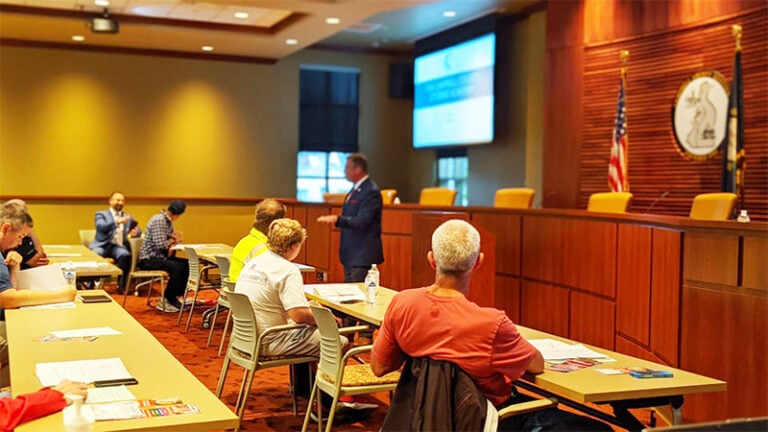An updated fiscal analysis compiled by non-partisan Legislative Research Commission staff for Senate Bill 10 (SB 10), sponsored by Senate Budget Chair Chris McDaniel, R-Ryland Heights, anticipates nearly $20 million in local government cost savings during a calendar year of an eliminated primary and general election.
McDaniel’s bill proposes an amendment to Section 95 of the Constitution of Kentucky that—if approved by three-fifths of members in the state House of Representatives and ratified by a majority of Kentucky voters on a future general election ballot—would move elections for state constitutional officers to even-numbered years.
Previous cost savings estimations for local governments ($13.5 million) cited by McDaniel and in news releases from the Senate Majority Caucus cited past fiscal analysis from the LRC associated with the previous version of SB 10. The anticipated approximately $1.9 million cost savings for the commonwealth remains essentially the same.
“When making estimations on budget-related matters and cost savings, I always find it beneficial to take a conservative approach,” McDaniel said. “With inflation and increased expenses for conducting elections, I‘m not surprised new estimates are greater than we previously thought. However, I’m thrilled the savings are about 50 percent more than expected. I always prefer to under-promise and overdeliver on matters like this, especially while some politicians prefer to overpromise while unable to deliver. I believe the good work by the LRC only further bolsters the merits of SB 10. I hope this updated fiscal analysis will further compel my friends in the state House to push the measure over the finish line and put the question before Kentucky voters for them to ultimately decide.”
The updated fiscal analysis is available at apps.legislature.ky.gov.
The elected offices impacted by the constitutional amendment include the governor, attorney general, agriculture commissioner, secretary of state, treasurer and auditor. The Kentucky Senate approved SB 10 on Tuesday, January 17, with the required three-fifths vote in the upper chamber. The bill is now with the state House for consideration. A constitutional amendment bill does not require approval by the governor. If approved by the state House, the amendment would be recommended to Kentucky voters. It would need to garner majority support on a future general election ballot to amend the Constitution of Kentucky.
The state House has received the measure across multiple legislative sessions. McDaniel has pursued approval of the constitutional amendment since he was first elected into the state Senate—an effort spanning multiple administrations within state constitutional offices.
Under McDaniel’s proposed amendment, elections for statewide offices would still occur every four years starting in 2032. The 2027 primary and general election would remain the same, but those elected to the constitutional offices in 2027 would have an additional year added to their term.
Along with the associated cost savings, advocates of SB 10 have argued the change would address voter fatigue and increase election participation.
Even though reforms from the Kentucky General Assembly have implemented reforms making it easier to vote, a previous release from the Senate Majority Caucus noted general election turnout for constitutional offices decreased by nearly 9 percent from 2019 to 2023. In a fact-check in the network’s coverage of SB 10, WKYT News reported that since 2008, years with constitutional office elections have had lower voter turnout when compared to years with presidential elections, according to data from the Kentucky State Board of Elections.
An argument resonating with most Kentucky voters favoring the adoption of the constitutional amendment is the opportunity to have an additional year free from political campaign ads, mailers, and signs along county and city roadways. Kentucky is one of only a handful of states holding off-year elections for statewide executive offices. Kentucky voters are responsible for voting in three out of every four years.
If approved by the state House, McDaniel’s ballot measure would read: “Are you in favor of amending Section 95 of the state constitution to hold the election of all statewide constitutional officers in even-numbered years after the November 2027 election?”
The process of amending the state constitution is outlined in Section 256 of the Constitution of Kentucky.
Kentucky Senate Majority Caucus


















